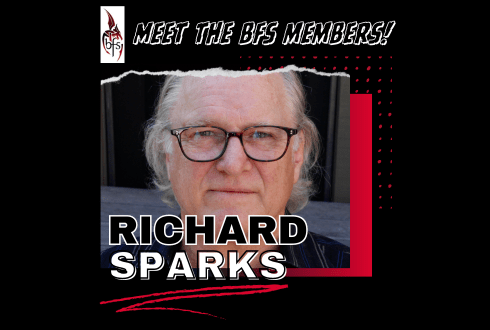Every Friday, we meet a member of the BFS and peer deep into their soul (or, at least, a form they filled out). Want to be featured? Email us: online@britishfantasysociety.org
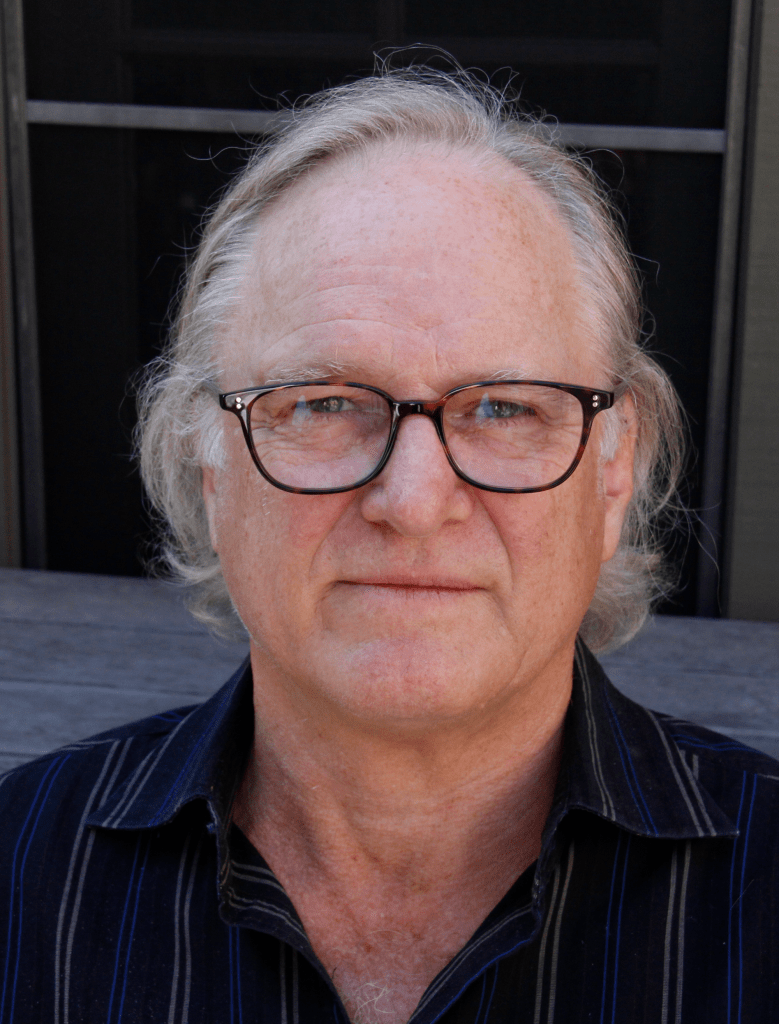
Name, including preferred pronouns
Richard Sparks (he/him)
Which region are you based in?
London / California
Genre you write
Fantasy
If you don’t write, what do you do?Read. Play the 5-string banjo. Play MMORPGs. Cook. Swim. Travel.
Are you drawn to any specific SFFH sub-genres?
Anything with a good story. I love to be surprised.
Your influences
Tell us about the book/film/thing that got you into SFFH: What was it? How old were you? What impact did it have on you?
I was a voracious reader from an early age. I loved myths and legends, of the Norse and Greek gods and heroes, as well as classic “wonder talesâ€, as Marina Warner calls fairy tales. Narnia, Middle Earth, The Magic Pudding, The Phantom Tollbooth, Rama and Sita, moving on to the Gothic and 19th Century creations (Mary Shelley, “Monk†Lewis, Beckford, Lord Dunsany, E.R. Eddison, William Morris, Stoker) and the emergence of Science Fiction (Wells, Verne et al.). The Golden Age of Sci Fi—particularly irreverent writers with a sense of fun, such as Robert Sheckley. The list goes on, from Asimov to Zelazny—and, thankfully, is still growing.
These works opened my mind to experiences beyond my own, in every direction: back to the dawn of time, and out to the edges of the universe. All human (and quite a lot of inhuman) life is there. My love of reading expanded into other fields, and I went on to study English Language and Literature at Oxford University—Exeter College, where both JRR Tolkien and Philip Pullman had also been English Undergraduates before me. As a student, I would always have more than one book on me: those I was reading for study, and those I was reading for fun—and often a Marvel comic in an inside pocket.
How does that early influence show up in your work now?
I once met the French singer Charles Aznavour, who said: “We are all products of the others. It is impossible for anyone to emerge fully formed from the forest.â€
I quote a line from Tennyson in New Rock New Role: “I am a part of all that I have met.â€
The earliest great work in (old) English is a fantasy epic: Beowulf. A thousand years earlier Ovid wrote Metamorphoses. The sagas, the eddas, the 1001 Nights, the Ramayana: these, and others, are true “wonder tales†that can take us anywhere, beyond the reality that confines us.
Which is where the New Rock series has taken me.
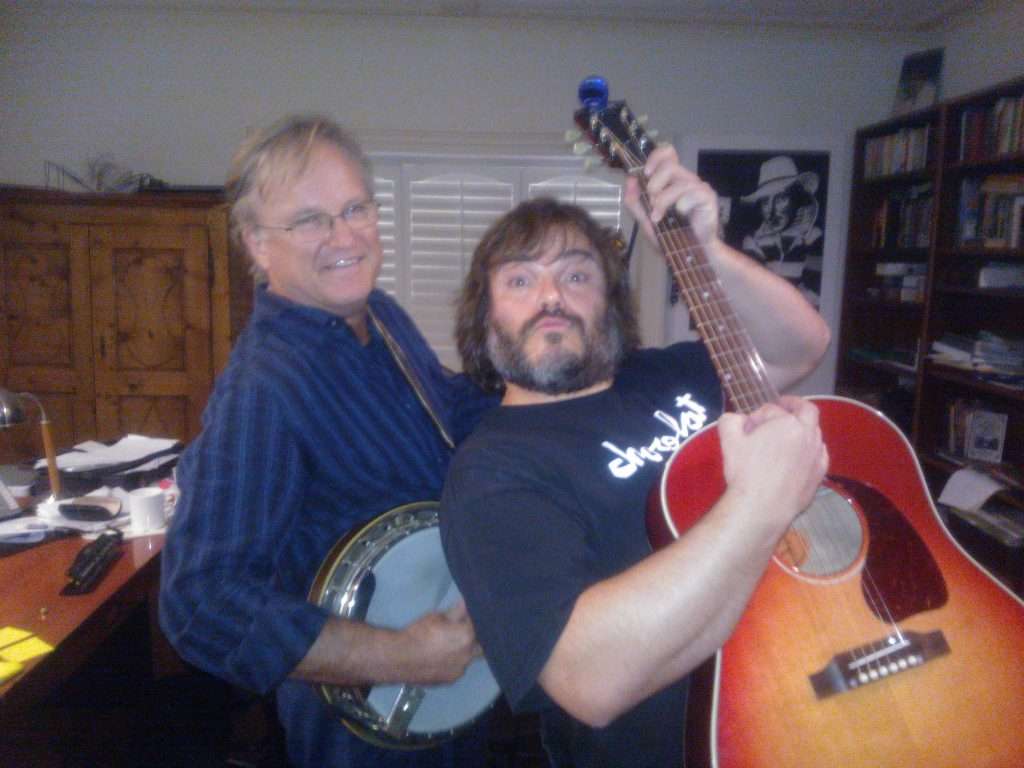
Where do you draw your creative inspiration from?
“Inspiration†comes from Latin: in this case, in– means into, and spirare means to breathe. Inspiration is what the muse, or the god, breathes into your ear. You have to be open to receiving the message.
Neal Peart, the late master rock drummer (of the band Rush) said: “A writer’s wife has to realise that when he is looking out of the window he is still working.†(Obviously this applies to husbands, partners, colleagues, and children as well).
So perhaps it is more useful to think in terms of “receiving†rather than “drawing†inspiration. It’s not like a well, which I can go to at will and draw up a bucketful. I receive it from out there. From anywhere and everywhere. Wherever I can get it.
And if I’m not alert, if I don’t write it down immediately, it goes away. Which is why I always keep a notebook by my bedside. Force yourself upright, write it down—or it will be gone in the morning. And it will have left a note on the bedside table: See? It was really good, wasn’t it? And now you can’t remember it.
Who do you look to as a genre hero? Why?
My daughter Elizabeth, for the simple reason that she got me back into reading fantasy again. I had won a seat in the World Series of Poker, and needed something to read on rest days (it’s a long tournament). On her recommendation I went to Barnes and Noble in Las Vegas and bought the box set of the Game of Thrones books (before the TV series came out). Having devoured those, I kept going back to her for more, and every one that she turns me onto is a winner. Ready Player One, read by the incomparable Wil Wheaton (I listen to audio books on my daily walks). Ryka Aoki, John Scalzi, Alan Dean Foster, Neil Gaiman… Talking of Neil reminds me that I hadn’t completely abandoned fantasy, as I have a shelf full of Terry Pratchett.
Your work
You’re stuck in an elevator for 60 seconds with that hero, and they want you to describe your work. Give us the pitch.
A retired schoolteacher, a widower living alone in his bungalow on the edge of a small town in England, leads his team to the World Championship of Sword and Sorcery with tens of millions watching live online. His avatar is Daxx, a heroic young battlemage/healer. His teammates are Qrysta, the sword-dancing, dual-wielding warrior avatar of an Asian American girl, and Grell, the fearsome Orc avatar of an Australian guy. As they celebrate their victory, he is dragged off and away from that virtual world, and his own real world, to find himself alone, in the middle of an unknown wilderness, armed with only a crappy sword and a small shield.
There is no sign of the others.
And he is no longer who he was.
He is Daxx. For real.
He is now his own avatar.
And wolves are howling, and coming his way…
If he is to find out what happened, and why, first of all he has to survive.
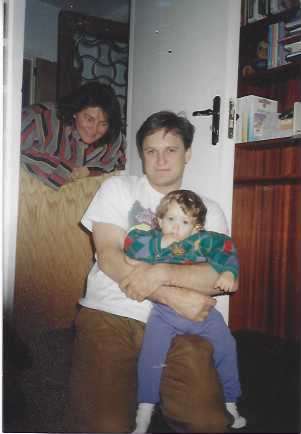
What are you working on right now?
New Rock New Ride, Book Five in the New Rock series. The others (New Rock New Realm, New Rock New Rules andNew Rock New Roads) will be published at yearly intervals.
Thinking about all of your stories/work you’ve done, which one sticks out most in your mind? Why?
To quote the composer and conductor Sir Arnold Bax: “You should try everything in life once, except incest and folk-dancing.†Over my decades as a writer I’ve worked in various genres, from sketch comedy to scriptwriting to writing and directing plays and operas, and have had three non-fiction books published. I have learned a lot from all of them—even the turkeys.
From the turkeys I learned that, try as you might, they were never going to be much good anyway. You do your best, which is what you have been paid to do. Afterwards, you reflect that it isn’t “being paid to write†that makes you a “real writerâ€. If you don’t need the money—or haven’t got any paid gigs on at the moment—well, now you have the chance to write something good. The work that you should be writing. The work that only you can.
It took me a long time to find my bliss as a writer. I knew how to write, I just didn’t know what to write. I tried all sorts of things, and explored a lot of blind alleys—while also having a lot of opportunities to work as a writer for hire (and script editor) along the way.
I am so grateful that I have found my what at last.
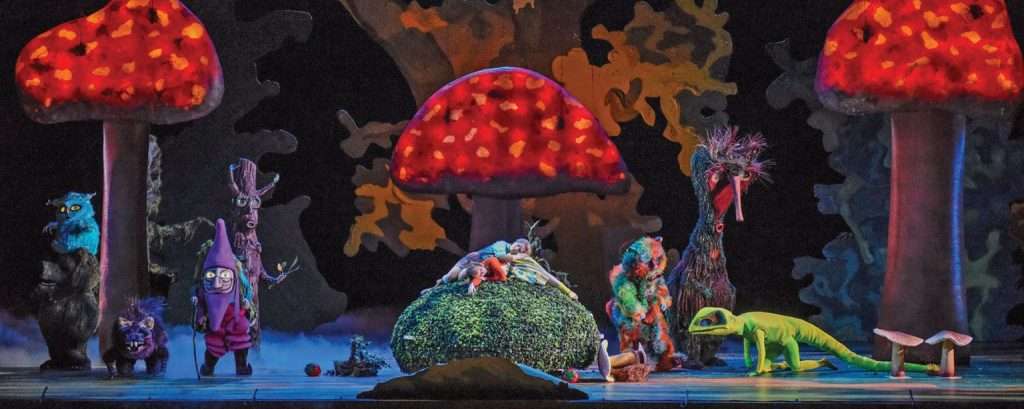
Where and when do you create/are you at your most creative?
At night. I was quite surprised when a novelist friend told me that she worked at night. I’d assumed that writing was my day job. I found that writing at night suits me naturally by a roundabout route. My wife is a lark, I’m an owl. After dinner, she goes to bed. I stay up, and for years played online role-playing games. When the idea for New Rock New Role hit me, I moved seamlessly from gaming to writing at night. I now write with the same enjoyment with which I played, relaxed and open to whatever is coming and wherever the story is leading me, often with a beer to hand. I make sure to be in bed by midnight. Unless it is going really well.
By day, I rewrite. And edit. And assemble my story outlines, which grow in parallel to the actual writing of the books. And write any other jobs I might have, such as scripts. And do admin, and emails, and research. And go for my walks, with my audiobooks, and let the story ferment in the back of my mind.
What’s the best advice you’ve received about creativity?
It’s something the philosopher and mathematician Bertrand Russell said. He was asked about how he addressed a new, unsolved mathematical problem. His approach was to read the material (the challenge) and study it intensely for forty-eight hours, then put it away and get on with other things. Then, months later, as the deadline for his presentation approached, the answer would present itself. He wrote: “It is as if orders had been given for the work to proceed underground.â€
We don’t know what we’re going to write next. How can we? It hasn’t been written yet. Looking back, it all makes sense. Looking forward: we may have a fair idea of where we’re going, but no one can ever know exactly how we’re going to get there. PG Wodehouse tells of how he loved writing his books but didn’t enjoy planning them. The planning would involve about 450 pages of notes and ideas before he started on the book itself. 450 pages! Wodehouse is the comic master of English letters of the 20th Century. If a little (!) planning is good enough for him, it should be good enough for the rest of us.
Pictured below: Famous Five reunion photos. Gail Renard (twice head of the Writers Guild of Great Britain) and I wrote most of the scripts for the two seasons of the 1970’s ITV series. The three surviving cast members, Marcus Harris (Julian); Jennifer (nee Thanisch) Burrows Anne; Gary Russell, later a Dr Who script editor and writer (Dick).
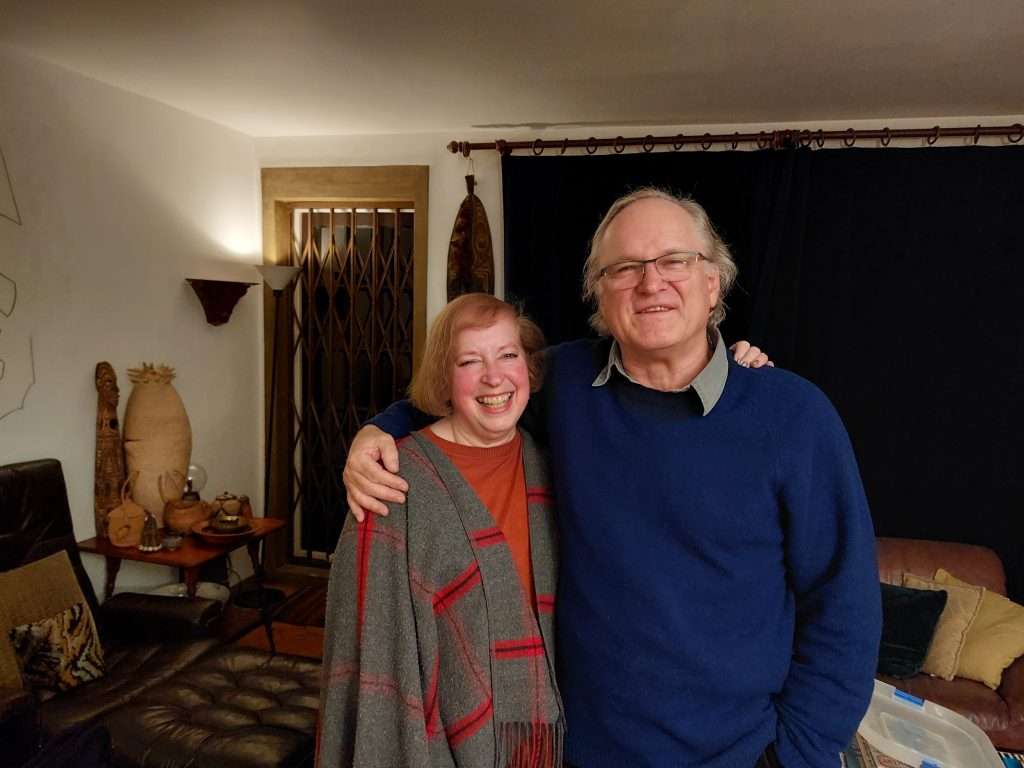
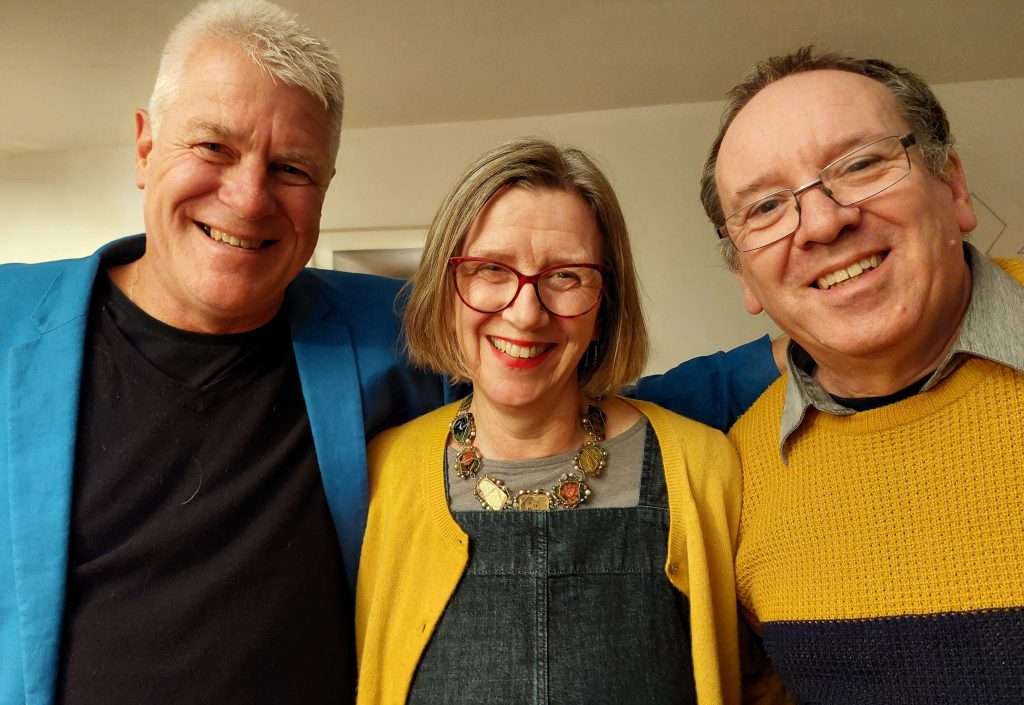
What’s your writing soundtrack?
Silence. Music would be a distraction. If I need a break I might wander around YouTube for a little Billy Strings, or Bix Beiderbecke and Frank Trumbauer, or Wagner, or Yuja Wang or Daniil Trifonov or… whatever catches my eye next week. I tell myself that “the work is still proceeding undergroundâ€. Alan Bennett once said that writers are very creative at finding ways not to write, and added that he can take up to five minutes cleaning the fluff out of the air filter in his washing machine.
The quickfire round
Sci-fi, fantasy or horror?
Fantasy
Quiet or loud?
Quiet
Dark or light?
Light
Strict lines or genre blend?
Both. Surprise me!
Awards or bestseller?
Bestseller
Fiction or non-fiction?
Both
Poetry or prose?
Both
Plotter or pantser?
Both. I work out my ending first, with no idea how I’m going to get there. I construct my outline and the emerging draft in parallel.

Reading or listening?
Listening—unless the reader doesn’t work for me, in which case I read the print version.
(Pictured: Jago, our neighbour’s dog, who inspires me when I take him on walks. With a good book in my earphones, and Jago charging around happily, I’m often struck by a thought and need to get out my notebook and scribble it down before it goes away.)
Notebook or computer?
Computer, with a notebook always in my pocket or on the bedside table.
Plotter or pantser?
Both. I work out my ending first, with no idea how I’m going to get there. I construct my outline and the emerging draft in parallel.
Reading or listening?
Listening—unless the reader doesn’t work for me, in which case I read the print version.
Notebook or computer?
Computer, with a notebook always in my pocket or on the bedside table.
Favourite SFFH book of all time?
Impossible to answer, but I’ll give you one of each.
SF: Time Enough for Love (Robert A. Heinlein)
F: Beowulf (Seamus Heaney). The wellspring.
H: Frankenstein (Mary Shelley)
Last book you read?
Between the Stops—a memoir by Sandi Toksvig
Any SFFH author on auto-buy?
I’ll always buy more by any writer whose work I’ve enjoyed.
Favourite podcast?
Revisionist History by Malcolm Gladwell
The home stretch
What’s the best thing about being a SFFH writer?
The community. We’re all enthusiasts. We just love the genre—and love turning each other onto works we love. I’m now going to a lot of SF&F conventions, doing panels and workshops, and just having a lot of fun with my fellow fantasy geeks.
Time to plug your stuff! Where can we find you and your work? What have you got coming up? Consider this your advertising space.
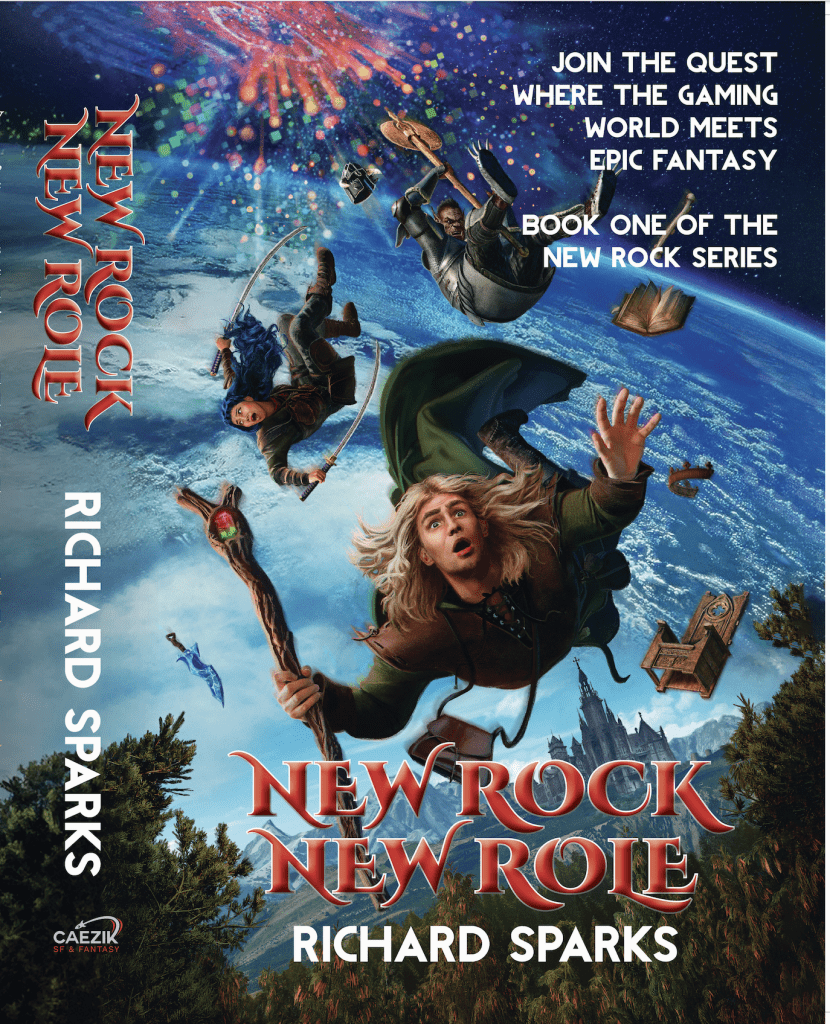
New Rock New Role was published by the US publishing house CAEZIK SF&F in December 2023. It is available as an audiobook (read by the author), an eBook or a physical book, online and in stores.
You can download a free chapter, and/or listen to a free audio sample, and learn more about me, my history as a writer, and all things New Rock at www.richardsparks.com

